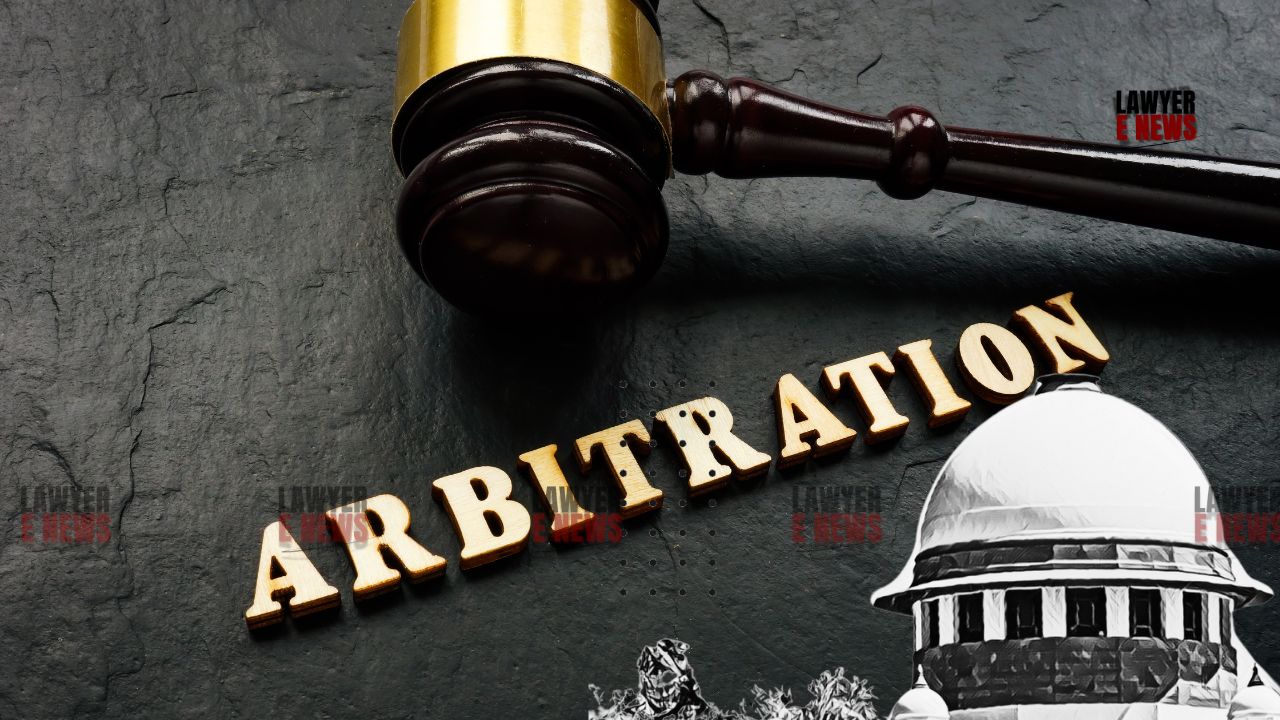-
by Admin
15 February 2026 5:35 AM



On November 7, 2024, the Supreme Court of India, in the case of Aslam Ismail Khan Deshmukh v. ASAP Fluids Pvt. Ltd. & Anr., clarified the limited scope of judicial intervention at the stage of appointing an arbitrator under Section 11(6) of the Arbitration and Conciliation Act, 1996. The Court held that, at this stage, referral courts should only confirm the existence of an arbitration agreement and the timeliness of the arbitration application under Article 137 of the Limitation Act, 1963, leaving substantive limitation issues to be addressed by the arbitral tribunal.
The case arose from a dispute between Aslam Ismail Khan Deshmukh, a Non-Resident Indian based in Dubai, and ASAP Fluids Pvt. Ltd. and its related entity, Gumpro Drilling Fluids Pvt. Ltd. The dispute concerned the failure to issue shares and share certificates to Deshmukh as promised under a Shareholders Agreement dated July 25, 2011. Deshmukh sought the appointment of an arbitrator under Section 11(6) of the Arbitration Act to resolve issues related to his share allotment, but the respondents argued that the claims were time-barred.
The Court examined two primary issues:
Whether Deshmukh's application for appointment of an arbitrator was time-barred under Article 137 of the Limitation Act.
The extent of judicial intervention permissible under Section 11(6) when the claims are allegedly time-barred or non-arbitrable.
The respondents argued that the claims were ex-facie time-barred, as the cause of action arose more than three years before Deshmukh issued a notice of arbitration. They contended that the Court should dismiss the application for arbitration on this basis. Deshmukh, however, argued that the limitation period should be calculated from the date of the respondents' final refusal to arbitrate, or alternatively, that the breach was ongoing, thus triggering Section 22 of the Limitation Act on continuous breach.
The Supreme Court reaffirmed that referral courts must take a minimalist approach at the appointment stage. It cited Vidya Drolia & Ors. v. Durga Trading Corporation and Bharat Sanchar Nigam Limited v. Nortel Networks India Private Limited, emphasizing that only in rare cases where the claims are "ex-facie and hopelessly time-barred" should courts deny a reference to arbitration. The Court clarified that determining whether claims are time-barred is typically a matter for the arbitral tribunal.
“Referral courts must only examine the existence of an arbitration agreement and whether the Section 11(6) application is filed within the three-year limitation period under Article 137 of the Limitation Act. Issues of substantive limitation should be left to the arbitral tribunal,” the Court stated.
The Court held that the limitation period for a Section 11(6) application begins from the date of the refusal to arbitrate or the expiration of the notice period for response. In this case, Deshmukh issued a notice of arbitration on January 23, 2017, and the respondents refused to arbitrate on November 7, 2017. Deshmukh then filed the present petition for appointment of an arbitrator on April 9, 2019, after an initial application before the Bombay High Court was dismissed for lack of jurisdiction. Accounting for this period, the Court found that Deshmukh's petition was filed within the limitation period.
Court’s Decision: Appointment of Arbitrator and Cost Implications for Time-Barred Claims
The Supreme Court appointed Mr. Mayur Khandeparkar as the sole arbitrator to resolve the dispute under the Shareholders Agreement, consolidating it with existing arbitration proceedings involving the same parties. The Court directed that the arbitral tribunal should address the limitation issue as a preliminary point.
In a noteworthy observation on costs, the Court indicated that if the arbitral tribunal ultimately finds the claims to be time-barred, it may direct that the costs of the arbitration be borne by the petitioner alone. This provision aims to discourage frivolous or stale claims from being brought to arbitration at the cost of the other party.
“In the event the arbitral tribunal ultimately finds the claims to be time-barred, it may direct that the costs of the arbitration pertaining to these claims be borne solely by the petitioner,” the Court stated.
The Supreme Court’s decision reinforces the principle that courts should not delve into evidentiary or substantive issues when deciding applications under Section 11(6). By limiting judicial scrutiny at the appointment stage to confirming the existence of an arbitration agreement and ensuring that the application is filed within the limitation period, the Court aims to uphold the parties’ intent to resolve disputes through arbitration.
This ruling is a significant affirmation of arbitration as a preferred dispute resolution mechanism, as it prevents unnecessary judicial interference and allows arbitral tribunals to independently adjudicate issues of limitation and claim validity.
Date of Decision: November 7, 2024
